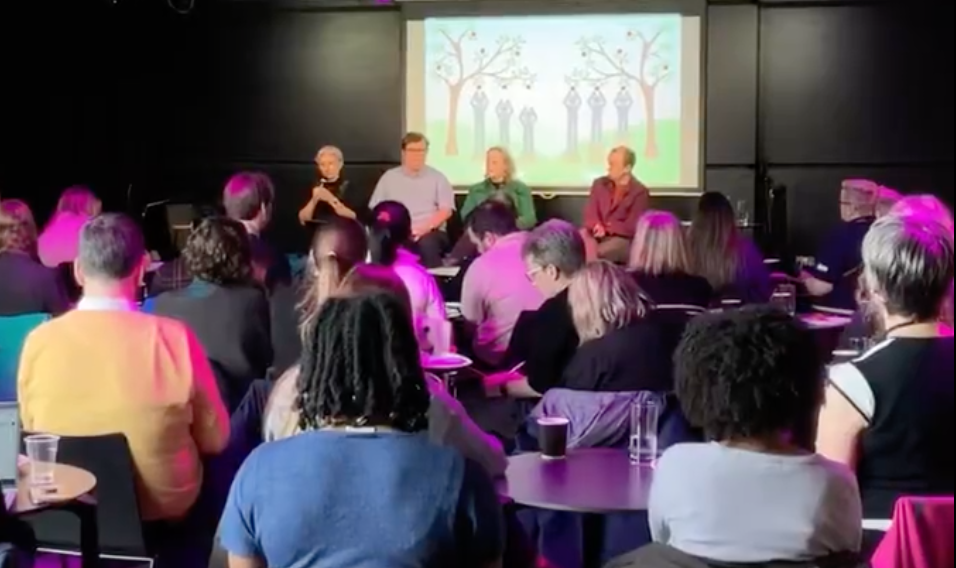On 7 February 2024, I was delighted to take part in a panel discussion on Creative Health and Health Inequalities in Greater Manchester at the invitation of the University of Manchester. I introduced the concept of creative health – that being creative and engaging with culture and heritage improves our health and wellbeing – and I spoke about how creative health approaches can help to increase equity. This lively event provided an opportunity for me to quote the late pioneer of community-based creative health, Mike White, from 2009: ‘A commitment to addressing the social determinants of health requires a process of engagement that goes beyond the health services themselves and builds alliances for social change’.
Chaired by Dr Simon Parry, the discussion featured fascinating contributions by Prof. Stephanie Snow and Dr Luke Munford. Simon, Luke and I worked together on the AHRC-funded Organisations of Hope project.
